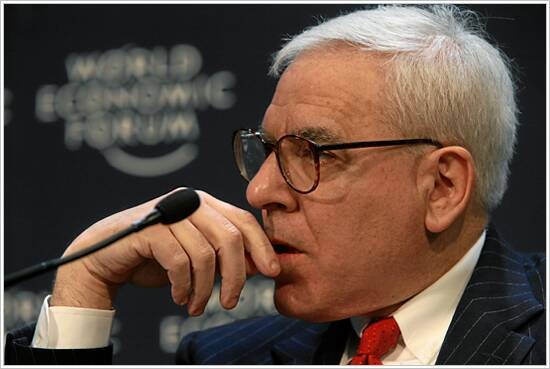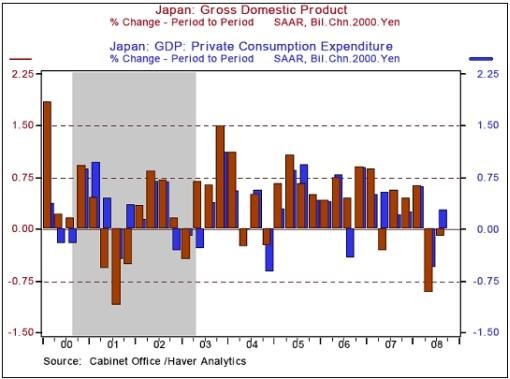Private equity investment trusts are perking up again after crisis
Post on: 25 Май, 2015 No Comment

View
comments
Investment trusts specialising in private equity were hit hard during the financial crisis but are now outperforming and still look cheap, according to industry figures.
Private equity firms invest in other businesses and then try to maximise their returns, but this has been hard to pull off during a period of recession and low growth, scarce credit and a challenging environment for company sales or floats.
Signs of economic recovery have sent shares in private equity investment trusts up 25 per cent over one year and 72 per cent over three years. That stacks up well against a 16 per cent gain over the past year and a 31 per cent rise over three years for investment trusts overall.
Worth a look: Private equity trusts have bounced back after suffering a torrid time during the financial crisis.
Meanwhile, discounts to net asset value or NAV — the main measure of when an investment trust is ‘cheap’ — are at their narrowest for the sector since before the credit crunch in 2008.
We also asked financial experts Tim Cockerill of Rowan Dartington and Jason Hollands of Bestinvest to give their take on how far the industry has recovered over the past five years, and to offer some investment trust tips.
Is it a good time to invest in private equity?
Private equity firms are not publicly listed on stock exchanges but you can still get exposure to them — and for ordinary investors, investment trusts are considered a good vehicle to do so.
This is because investment trusts raise a pot of capital to invest at launch, and managers can plunge it into assets that may not pay off for a long time and are difficult to get out of quickly, such as private equity firms.
Investors can buy or sell shares to join or leave the trust. If a large number suddenly offload the stock the price might plummet, but the manager isn’t forced to liquidate assets fast to pay them back.
Despite this advantage, the credit crunch nevertheless took a severe toll on private equity investment trusts This was partly because conditions were tough for nearly all businesses, but also because it became very hard to ‘exit’ investments and realise returns by the usual routes.
Private equity firms normally make money by buying, overhauling and then later selling, merging or floating the firms they have invested in. They also often use high levels of debt to ease their path through this whole process, which of course had dried up.
Andrew Lebus, manager of the Pantheon International Participations investment trust, believes the environment for exiting private equity firms is now healthy.
‘In today’s more stable economic environment the component drivers of outperformance remain in place. Investment activity has increased whilst the exit environment remains healthy, driven by trade sales as cash balances on corporate balance sheets remain high.’
He adds: ‘By investing in private companies, private equity investors can gain access to a much larger universe of opportunities worldwide than can be obtained through public markets.’
WHAT ARE INVESTMENT TRUSTS?
Investment trusts are listed companies with shares that trade on the stock market.
They invest in the shares of other companies and are known as closed end. meaning the number of shares or units the trust’s portfolio is divided into is limited — unlike unit trusts or open-ended investment companies (OEICs) where investors’ money is pooled to invest in shares, bonds or other funds.
In an investment trust, investors can buy or sell shares to join or leave the fund, but new money outside this pool cannot be raised without formally issuing new shares.
Investment trusts can be riskier than unit trusts/OEICs because their shares can trade at a premium or discount to the value of the assets they hold, known as the net asset value.
For example, a trust’s price can fall below the total value of its holdings if it is unpopular and people do not want to invest but do want to sell. This pushes down demand and drives up the supply of its units for sale.
This gives new investors the opportunity to buy in at a discount. but means existing investors’ holdings are worth less than they should be.
Trust shares, like all stocks, are also affected by wider market ‘sentiment’ — they can get caught up in a boom or sell-off where the price becomes detached from their underlying fundamental value, at least for a time.
investment trusts tend to be a lower-cost option than funds. with no initial charge and lower annual fees. However, buying them incurs share-dealing charges. A good DIY investment platform will cut these.
Are private equity trusts cheap?
A measure of when it is a good time to buy investment trust shares is the relationship to net asset value, or NAV, which is essentially the value of an investment trust’s holdings. It is calculated by dividing the total value of assets (what it owns) minus liabilities (what it owes) by the amount of shares existing.
An investment trust trading at a discount to NAV may be regarded as cheap because the shares cost less than its overall value — although it might also mean investors are justifiably pessimistic about its prospects. When a trust trades at a premium to NAV it is more expensive than its net worth.
Discounts in the private equity investment trust sector are now at their narrowest since before the credit crunch in 2008, according to data from their industry body Association of Investment Companies.
It says the average private equity discount reached the narrowest recent average of -13.8 per cent at the end of February, and the average discount was -18.4 per cent at the end of June.
To get that in perspective, four years ago in February 2009 the average sector discount reached its widest level at -61 per cent.
‘Despite the credit crunch hitting private equity investment companies hard, the sector has had a good 2013 so far, with markets having rallied and discounts in the sector narrowing to reflect this,’ says the AIC.
Lebus says ‘The listed private equity sector over the last 12 months has seen discounts narrow significantly from the levels that persisted following the global financial crisis.
‘Even after these price improvements, we believe the sector offers excellent opportunities for long-term investors.’
Recovery: Is there now a healthy ‘exit environment’ for realising returns in private equity investments?
Beware of industry over-optimism
Private equity investment trusts are a specialist and widely varied sector, says Tim Cockerill of wealth manager Rowan Dartington.
‘First and foremost, people have to do some homework on it. You can’t look at a selection of private equity vehicles and think they are all the same and you can go for the best discount.’
For instance, some hold other private equity funds, some hold direct investments in companies and some hold what are called ‘secondary’ investments. The latter is an interest they can hold in a third party which is in the process of trying to sell an investment, so it typically produces faster returns.
Cockerill says investment trusts in this sector also differ vastly in size. He offers the comparison of Dunedin Enterprise, which has a £95million market cap, against 3i, with a £3.6billion market cap.
Would-be investors should also investigate a trust’s funding requirements, because it might have a commitment to provide extra funding to a concern at a later date, he advises. This might have to be done by raising debt or selling an existing holding.

Regarding the outlook for private equity trusts, Cockerill says: ‘They have recovered from the depths of where they fell to in the financial crisis. Returns have looked in some cases quite good. Many remain at big discounts.’
But he adds: ‘A big discount doesn’t mean it’s going to close and you are going to make money. It’s a potential but it’s not by any means guaranteed. The investment trusts trade at discounts for a reason, because there is no confidence in growth or a question mark over valuations.’
The doubt over valuations is not something ‘iffy’, but with private equity firms what their investments are truly worth remains an unknown element until they are sold, he explains.
When it comes to industry assertions about the healthy ‘exit environment’ for realising returns, Cockerill says: ‘You have to beware of them being overly optimistic.
Trading trends: Shares in private equity investment trusts are up 25 per cent over one year and 72 per cent over three years
‘The environment is much better than a year ago or two years ago. The question to ask is can they give you some numbers around the deals that have taken place. Are they reaching fair value?
‘The economy has got better, albeit slowly. There is more confidence. The fear that something really nasty is going to happen has gone so it is improving.’
Cockerill recommends investors hold no more than 5 per cent of their portfolio in private equity. He tips the Electra Private Equity trust, which mostly invests directly in unlisted companies and has an £880million market cap.
Electra’s investments include Allflex Holdings, an animal identification tag firm — it put in £49.3million, and its holding is now valued at £252.5million. It also holds Park Resorts, a caravan parks operator, and Premier Asset Management, an investment management firm.
Electra currently trades at a 14 per cent discount to NAV, after coming in from about 30 per cent over past 12 months.
‘It’s closed a lot but at this point I wouldn’t expect it to close any further,’ says Cockerill.
Get private equity exposure in a general investment trust
Jason Hollands, managing director of financial adviser Bestinvest, warns that investment returns in this sector can be quite ‘lumpy’.
He says often a private equity firm will be the only investor in a business, and will have to get its hands dirty running it — choosing the board, finding a new chairman, and getting it to a state where it can sell at a decent profit.
‘They are essentially an insider in the business, understanding it, helping it to develop and getting that exit,’ explains Hollands.
The usual options are to sell to a another private equity company or trade buyer, or to float the business in an IPO.
‘A lot depends on whether trusts can exit the investments they are in and this is influenced by the economic environment,’ says Hollands.
‘The credit crunch made it really tough for private equity managers to sell at a profit for a price that might realise value. But as the economy improves you are seeing more enthusiasm.’
When a private equity firm realises a return, it might issue a special dividend or its shares will be revalued accordingly, he says.
Hollands suggests investors have around 5 per cent exposure to private equity in their portfolios, but points out you can get this in a general investment trust rather than with a specialist.
He tips the venerable Foreign & Colonial investment trust (trading at an 8.8 per cent discount to NAV) or RIT Capital Partners (-10.6 per cent discount to NAV), an investment trust chaired by Lord Rothschild














